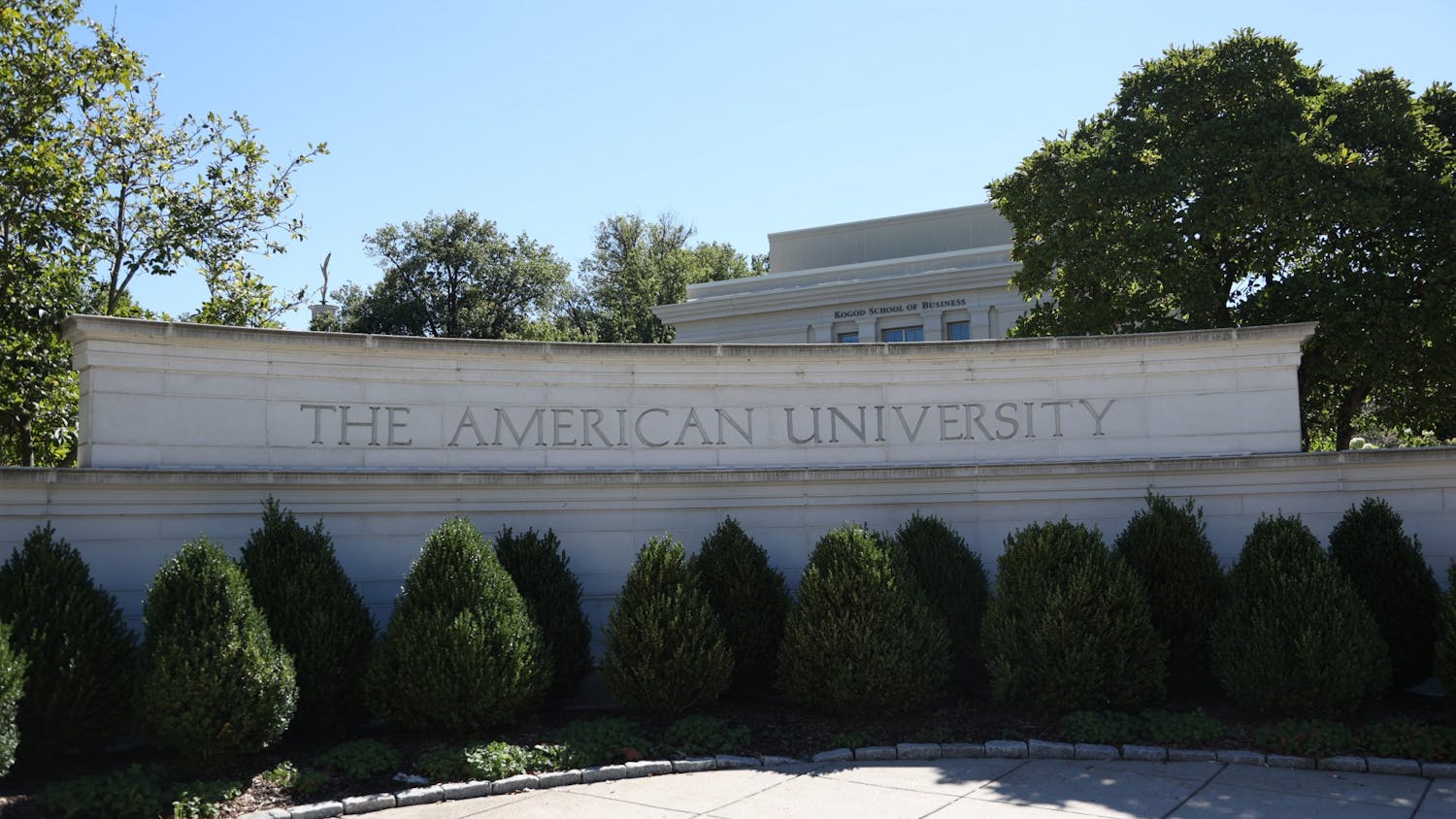BY MARY SPECHT Contributing Eagle Writer 202-390-9236
AFI Silver Theatre's 400 seats were all filled at 7 p.m. on Thursday for the D.C. sneak preview of "Silver City," followed by a Q & A session with director John Sayles and producer Maggie Renzi moderated by AU professor and director of the Center for Social Media Patricia Aufderhiede.
School of Communications dean Larry Kirkman and alumnus William Thompson, vice president and general manager of Newmarket Films, which distributed "Silver City," introduced the film. Starring Chris Cooper, Richard Dreyfuss and Danny Houston, the film is a scathing satire of contemporary politics and especially the Bush administration.
"So, John, I guess you're not voting for Bush," said Aufderheide in the Q & A session following the movie.
"I made some of the parallels between [Dickie] Pilager [the movie's main character, a dimwitted, wealthy gubernatorial candidate] and [President George W.] Bush because I wanted people to make the connection," Sayles said.
He went on to explain that mocking Bush was not the sole aim of the movie. Sayles wanted to explore two issues in "Silver City." First, he considered whether politicians are working for the public, or for "the corporations that sign their checks." Second, he explored how the same conflict of interest affects journalists.
Renzi said she was dissatisfied with the recent coverage of protest marches in mainstream media. "If you marched it was completely unreported or underreported.... We live in New York. We marched on a Saturday and it took until Wednesday for the New York Times to report it. And that was only after really a lot of letters to the editor," said.
She got the sense that people were afraid to speak out against the current administration.
"When we made the decision [about when to release the movie] all I really wanted was to think that right before the election people would dare to gather in a dark room and ridicule the bastards," she said.
Sayles and Renzi focused on the power of film and its ability to give a voice to the public and to investigate topics that don't make it into mainstream media.
"There was nothing in [Michael Moore's] "Fahrenheit 911" that should not have been on the nightly news," Sayles said.
They said that "Fareinheit 911" brought attention to its message by attracting record numbers of filmgoers.
"That's the kind of noise that the country notices. People really notice the grosses of Michael Moore's movie," said Renzi, adding, "It sends the message that actually we weren't all asleep at the wheel and that there is real opposition. I think that in a funny way, going to the movies right now is a way, like marching, for us to show that we know what's going on and we don't like it."
Aufderheide thought that AU students would be struck by Sayles' and Renzi's storytelling and motivational message.
"I thought ... the takeaway was that artists can tell entertaining stories that are also meaningful and provocative about the big issues of the day. I also thought that both John and Maggie spoke eloquently about the need for citizens to get directly involved in the political process, not to be intimidated into silence, and to make politicians be as good as we can make them," Aufderheide said.




